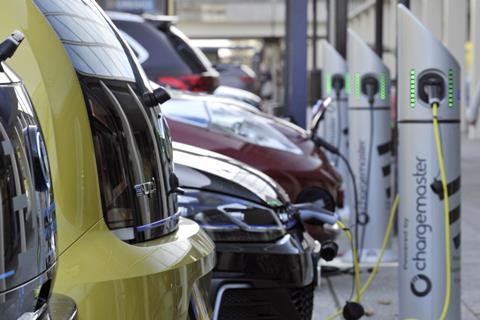- Electric vehicle adoption has risen by 291% over two years
- ● Growth in demand poses significant infrastructure challenges for local authorities and power networks

New research from Experian shows that the UK’s electric vehicle market will only continue to grow if the right infrastructure is in place to meet demand.
The study, conducted in partnership with Zap-Map, shows adoption of EVs increased by 291% over the last two years. The volume of public charging points has also increased, with 33,281 now installed across the country, a rise of more than a third (35%) since the same time last year.
Areas that have already seen a high level of EV adoption and where demand is expected to continue to grow include Barnet in north London; Leeds, and Wiltshire.
Meanwhile, the north-east which has previously seen a high level of demand but a low level of charging points, saw its number of points grow by 21% in the first six months of the year – the highest rate of growth in the UK.
Another significant factor for local authority planners and power networks to consider is the number of homes with and without driveways, according to Experian.
Locations in Buckinghamshire, South Cambridgeshire, and Wokingham were identified as areas with a high number of homes with driveways and strong demand for EVs. In these areas, power networks will need to establish how best to meet this growth and plan accordingly.
Conversely, cities such as Bristol, Edinburgh and Brighton were identified as having a high number of properties without driveways. In these locations, local authorities will have to ensure the right level of infrastructure is in place to support on street-charging for those without private parking.
Colin Grieves, managing director, Experian Marketing Services, said: “Our analysis shows that consumers now view EVs as a better alternative to traditional vehicles, and this trend is only going to increase. However, appetite may be thwarted if the correct infrastructure is not in place.
“By modelling where demand is likely to be most concentrated in the forthcoming years, infrastructure planners can begin to meet the challenge effectively.
“It is no small task. Getting resources in the most appropriate place well ahead of adoption means our communities will be well-placed to cope with these new demands.”
Melanie Shufflebotham, co-founder & COO at Zap-Map, said: “With the rapid growth in the popularity of EVs, things are really stepping up a gear. Now more than ever, it’s crucial that the UK’s charging infrastructure continues to develop at pace so that driving an electric car is as simple as possible.
“Over the past few years the UK has seen significant investment from the private sector into the country’s high-speed charging network, and we’re now beginning to see the benefits. Closer to home, local authorities have tools such as the Government’s Local Electric Vehicle Infrastructure Fund at their disposal to make local EV hubs and charging on residential streets a reality.
“It’s great to see companies such as Experian engaging in discussions with local authorities across the country. A joined-up approach is essential to creating an EV landscape that works for everyone.”
Experian says it is in discussions with local authorities and power networks across the country to help them better understand the EV landscape and meet the challenges ahead.

































No comments yet